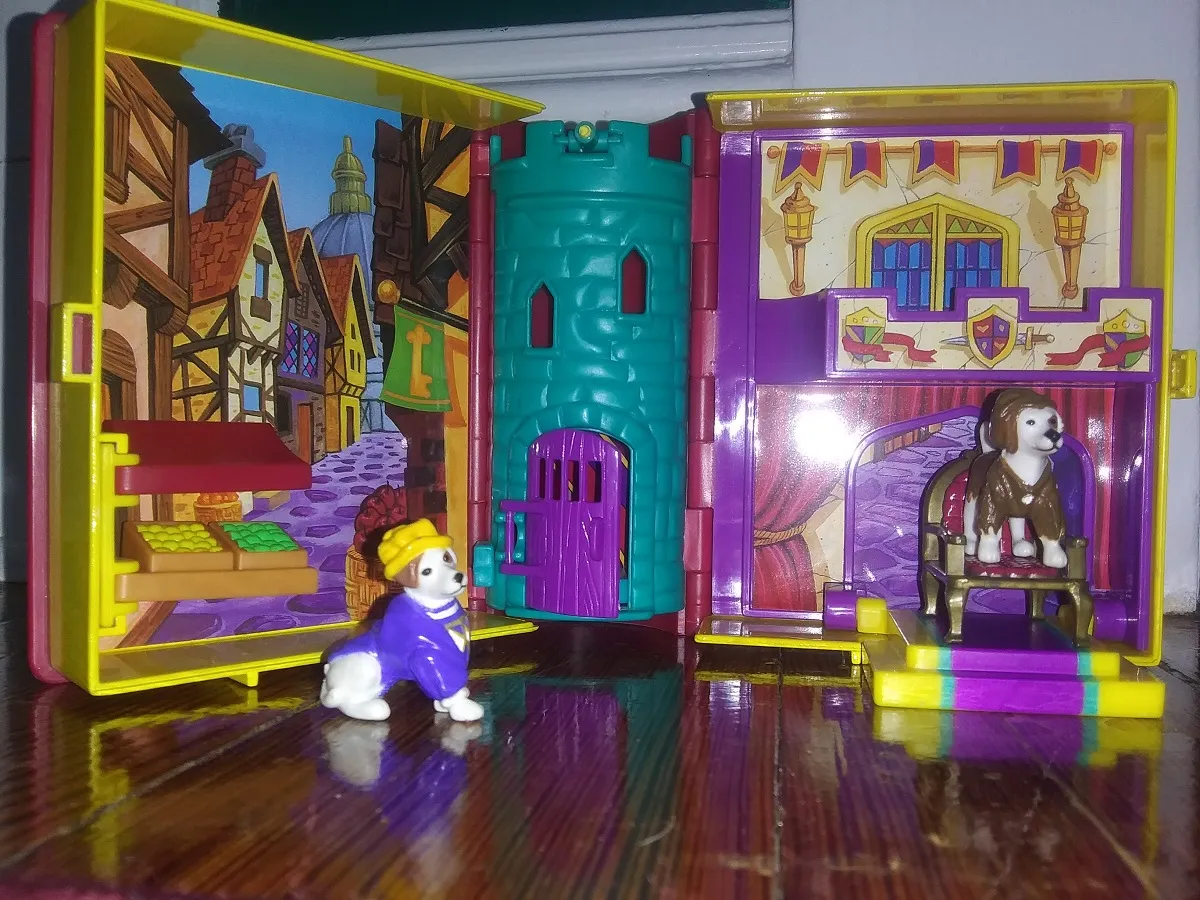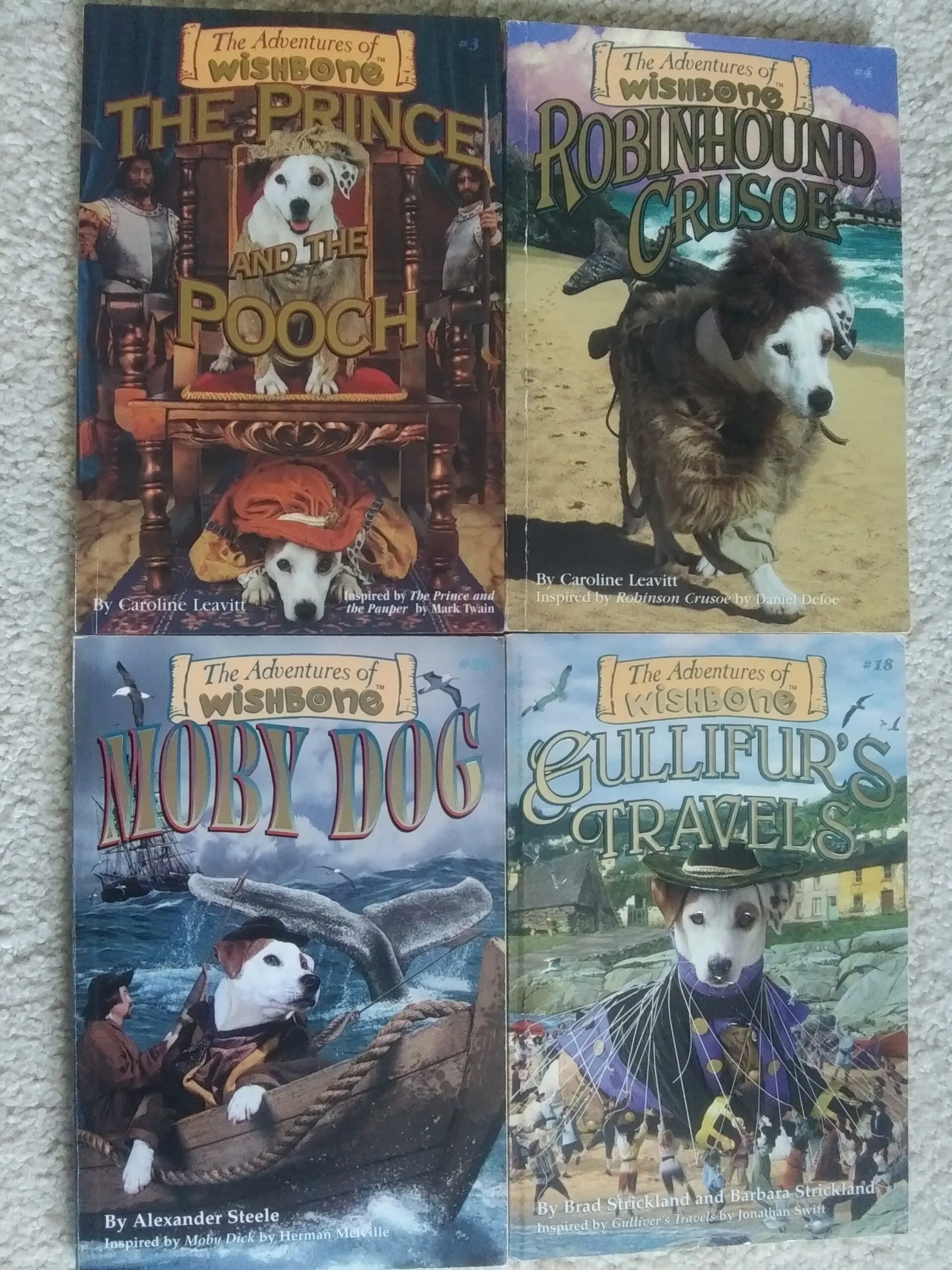What’s the Story? A History of WISHBONE
What’s better than an adaptation of a classic book? How about an adaptation of a classic book starring a DOG?
Airing on PBS from 1995 to 1997, Wishbone‘s basic premise was this: Wishbone, a highly literate Jack Russell terrier, lives in the town of Oakdale with his owner, a boy named Joe; Joe’s friends, Samantha and David; and various other colorful characters. (The kids’ English teacher is a secret Elvis impersonator.) As everyone goes about their daily lives, Wishbone frequently slips into book-based reveries, comparing the goings-on in Oakdale with the plots of famous books.
Some of the best episodes include adaptations of Dumas, Austen, Doyle, Poe, and so many others. Although the series mostly focused on white writers, they did occasionally turn to other sources, featuring the stories of Anansi and Juan Diego. All of them star Wishbone in wee period costumes.
Does that sounds awesome to you? Well, I should hope so!
Wishbone was created by Rick Duffield, who says he got the idea from his own dog and from a book of world literature he happened to have lying around the house. (Inspiration really is everywhere!) The show was immediately popular with audiences of all ages, from the little kids it was aimed at to college students who needed extra help passing English class. As I noted in a previous article, Wishbone‘s adaptations were short but faithful, sometimes even more so than adaptations meant for adults. This undoubtedly increased both its educational and entertainment value.
(The fact that the theme song will be stuck in our heads for all of eternity also helps. You’re welcome for the link.)
Wishbone himself was played by multiple dogs, the most famous of which was named Soccer. They were all very good boys, and their work (and, y’know, the work of the humans attached to the show) won several Daytime Emmys and even a Peabody.
And yet, Wishbone was only on for two seasons. In his book Seductive Screens, Michael Brody alleges that this is because PBS preferred shows that were easier to merchandise; his source on this is none other than Rick Duffield. The book is, frankly, pretty pretentious-looking — who died and made this dude the king of deciding what “worthwhile” children’s shows are? — and this claim makes me tilt my head a little. If your marketing team can’t figure out how to merchandise an adorable dog with a full wardrobe, you need new marketers.
There was at least some merchandise, for the record. I remember having a plush toy of Wishbone in his get-up from The Prince and the Pauper (rebranded “The Prince and the Pooch” for the show — many episodes had such pun-tastic titles). I still own a little playset based on the same episode: it’s a plastic, book-shaped case that opens to reveal a dual castle/street scene.

Appropriately, there were also many, MANY books based on the series. At least four book series, in fact. Some of the entries in “The Adventures of Wishbone” and “The SUPER Adventures of Wishbone” were direct retellings of the TV episodes, but others adapted books the show never got to, like Gulliver’s Travels (‘scuse me — Gullifur‘s Travels). The Wishbone Mysteries and The Wishbone SUPER Mysteries were original mystery stories with a bookish connection. Disoriented Express was a murder-free homage to Murder on the Orient Express, for example.

(If you’re curious, the SUPER series were so named because they were longer than the books in the regular series.)
So now that this article has gotten you all excited for Wishbone, where can you watch it? There’s the rub, I’m afraid. The entire series has never been released on DVD. A few episodes are available on exorbitantly priced DVDs or even VHS tapes, but that’s about the extent of its (legal) availability at this time. The books are super cheap, though.
There is a sliver of dubious hope on the horizon: a Wishbone film adaptation is in the works, a fact that has me quaking in trepidation. Is there any chance Hollywood won’t run roughshod over the simple pleasure of this simple, lovely show? Then again, I was skeptical about how The Peanuts Movie would turn out, and it was great. I would be thrilled to be wrong again. And it’s not like Wishbone has never had a movie before: there was a direct-to-VHS feature in 1998, Wishbone’s Dog Days of the West. So who knows?
If nothing else, if we are lucky, the Wishbone movie will at least generate enough attention to force a DVD or streaming release of the original show. It’s long past time, if you ask me. Or the many other Millennials who have fond memories of learning about classic literature with the help of an adorable furry friend.











